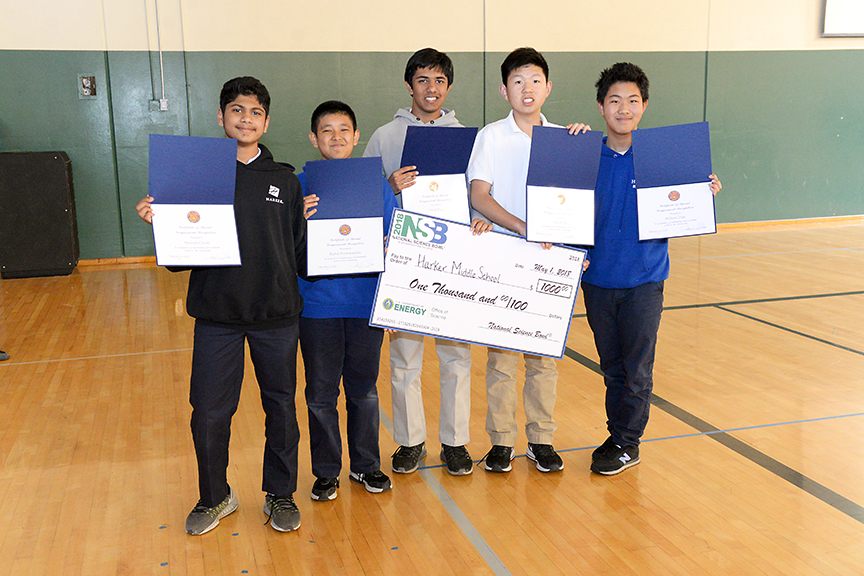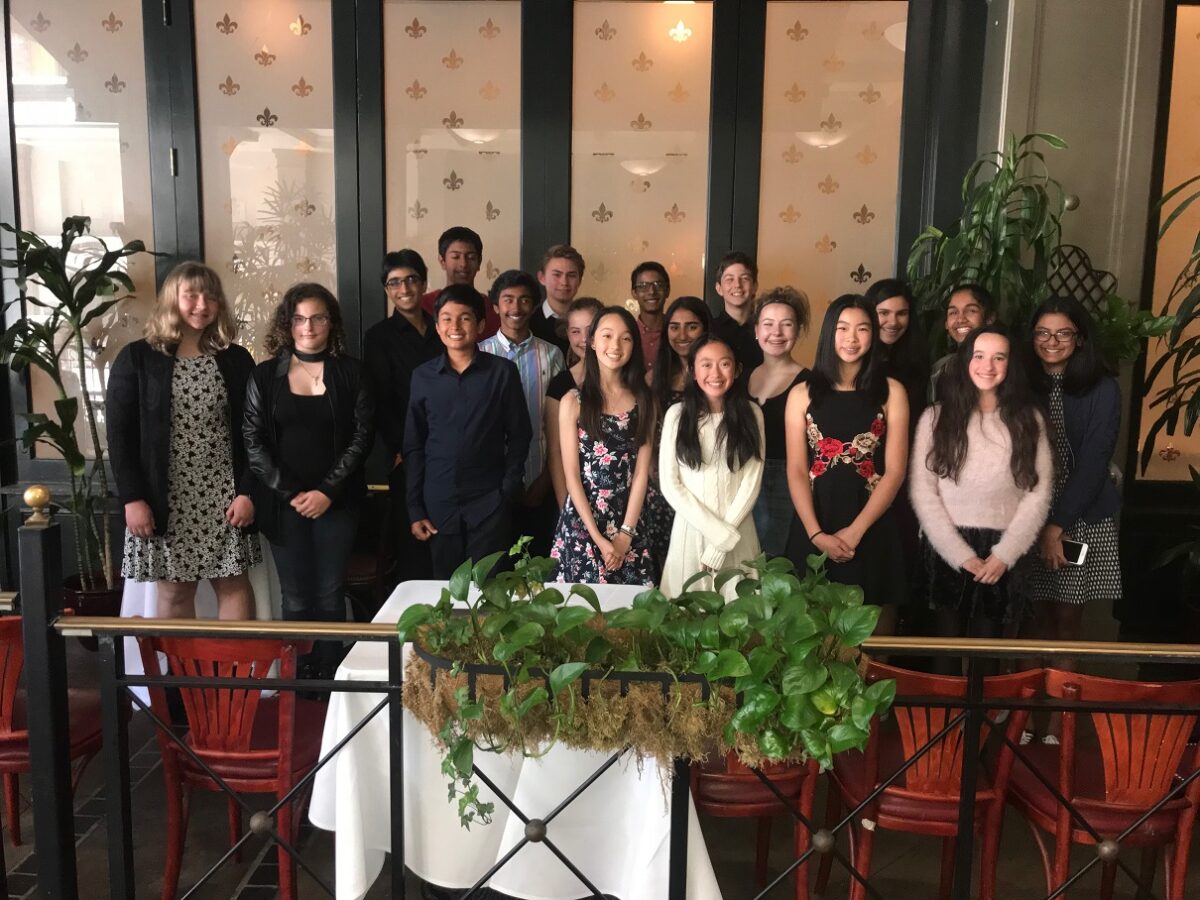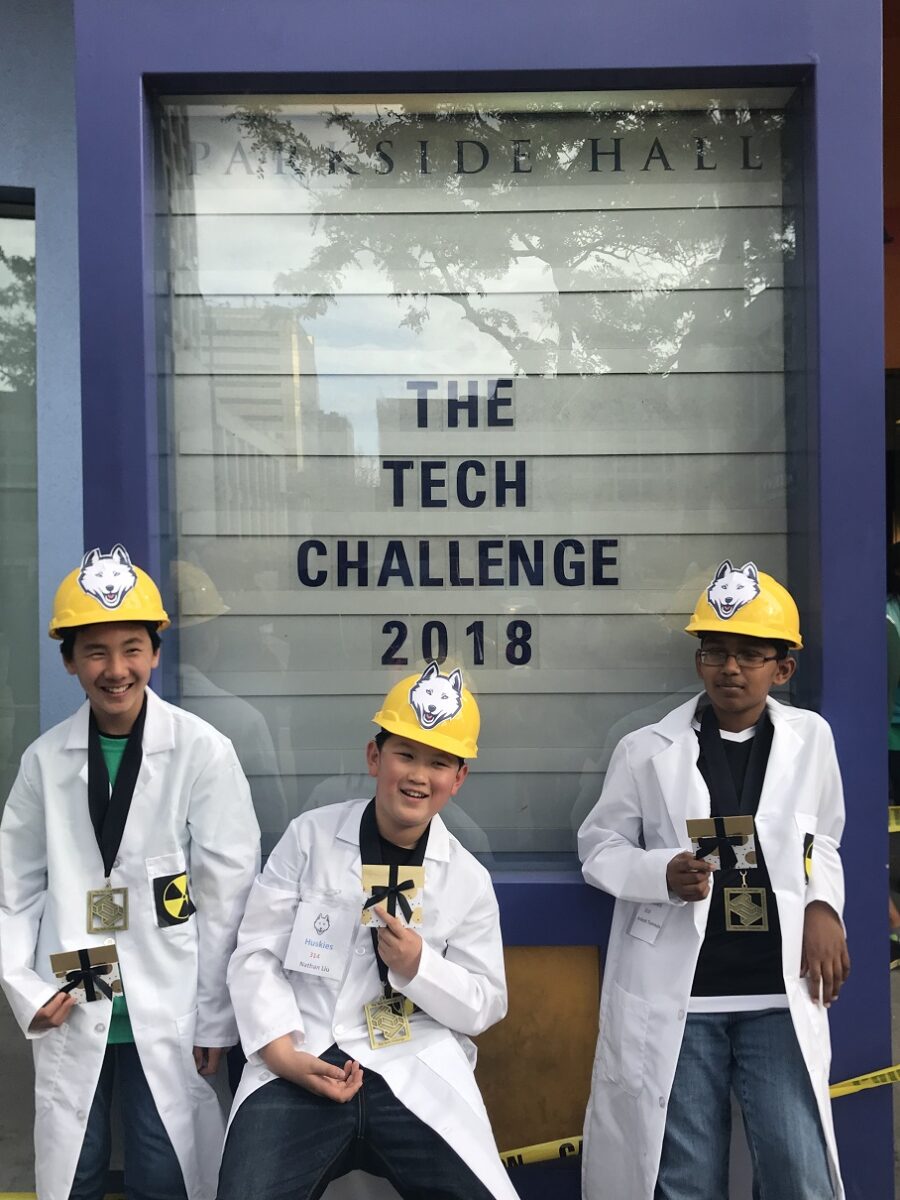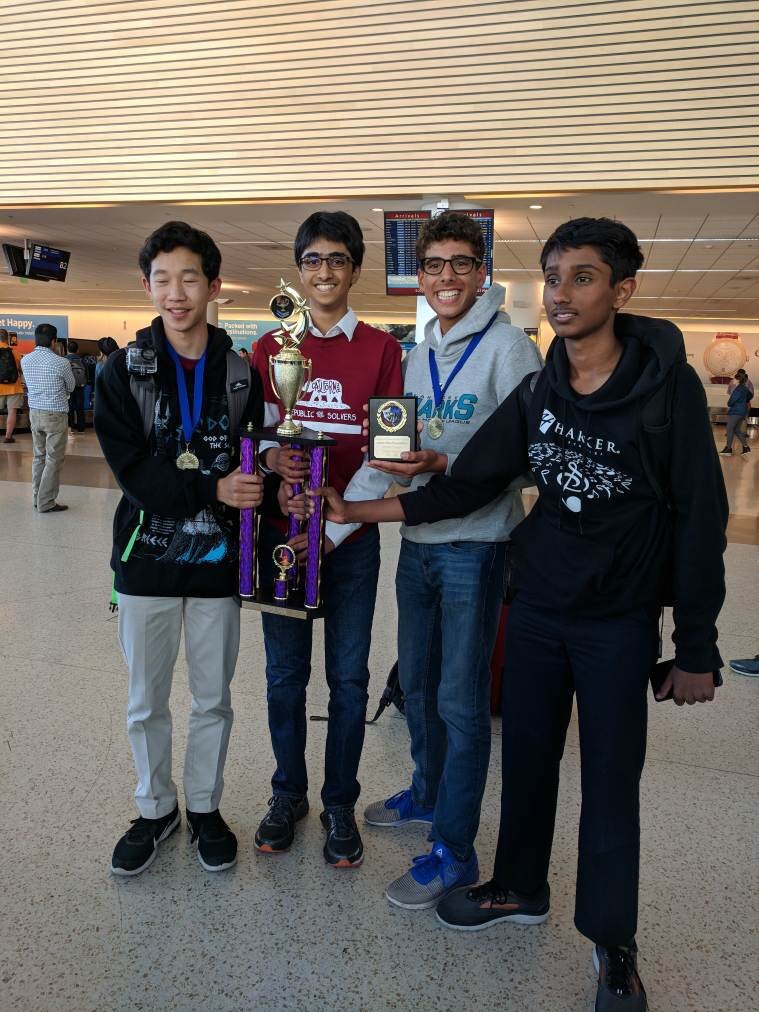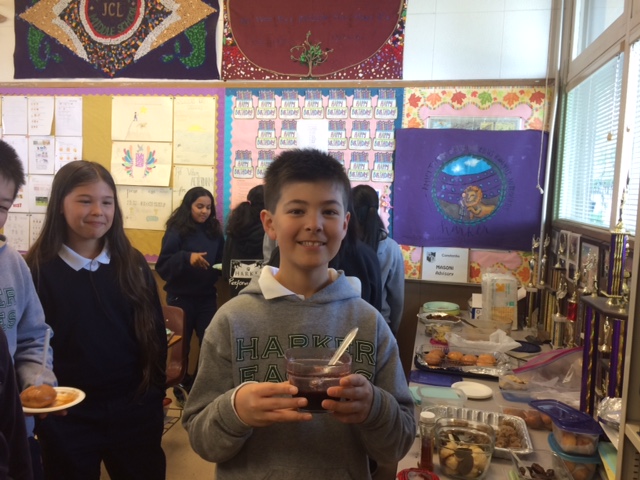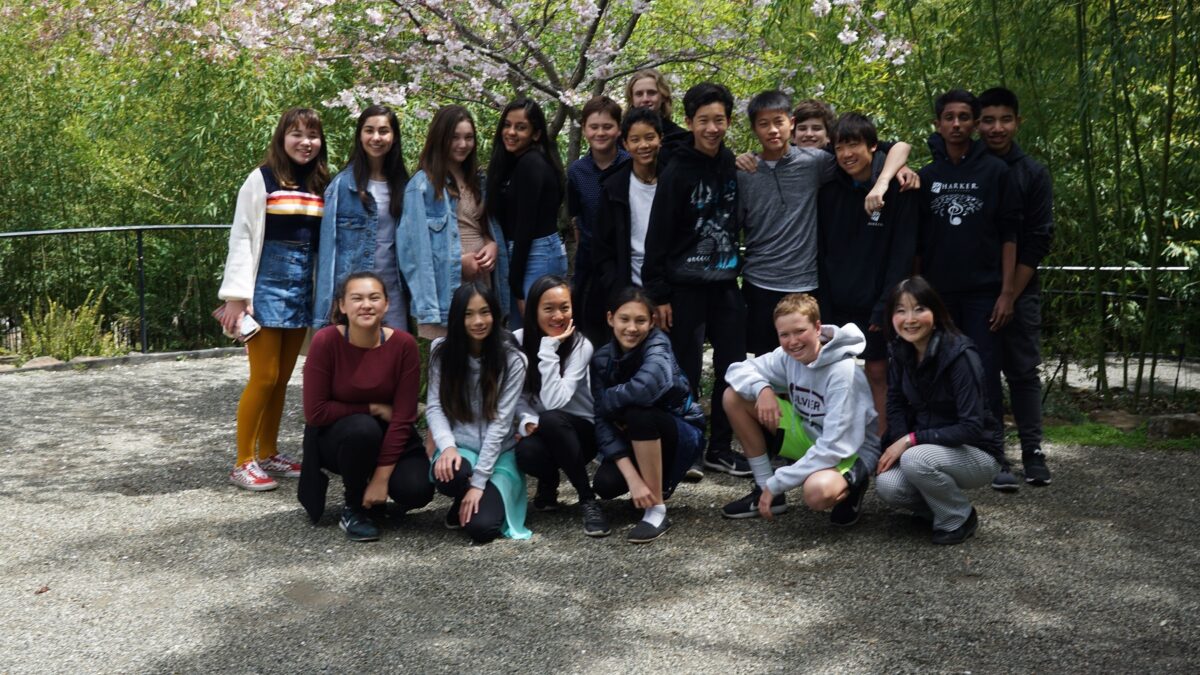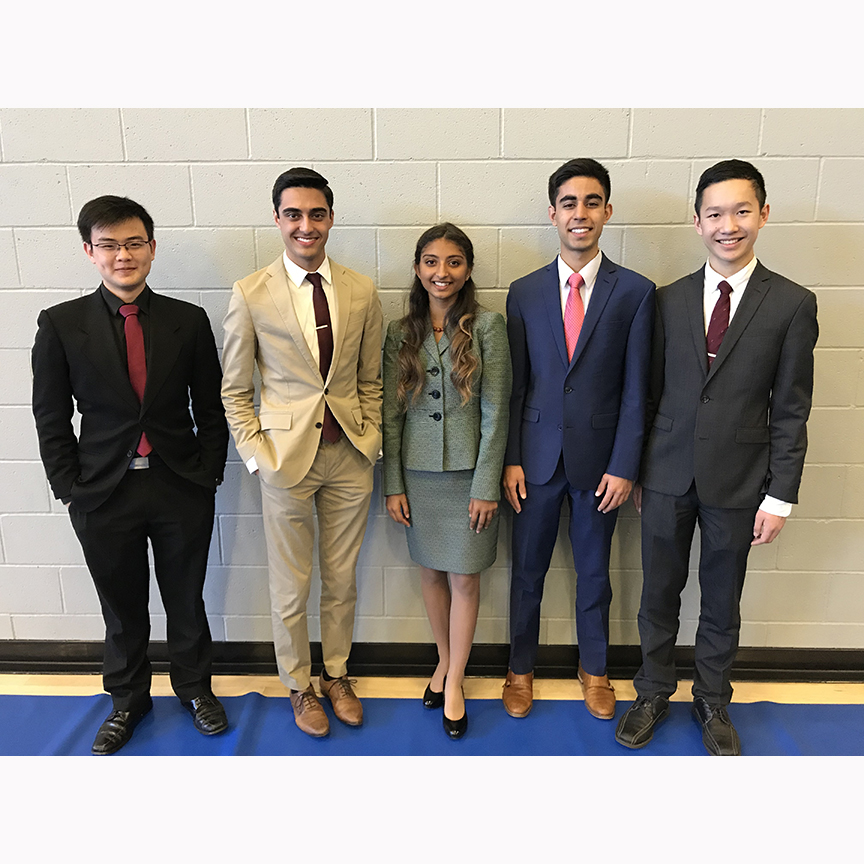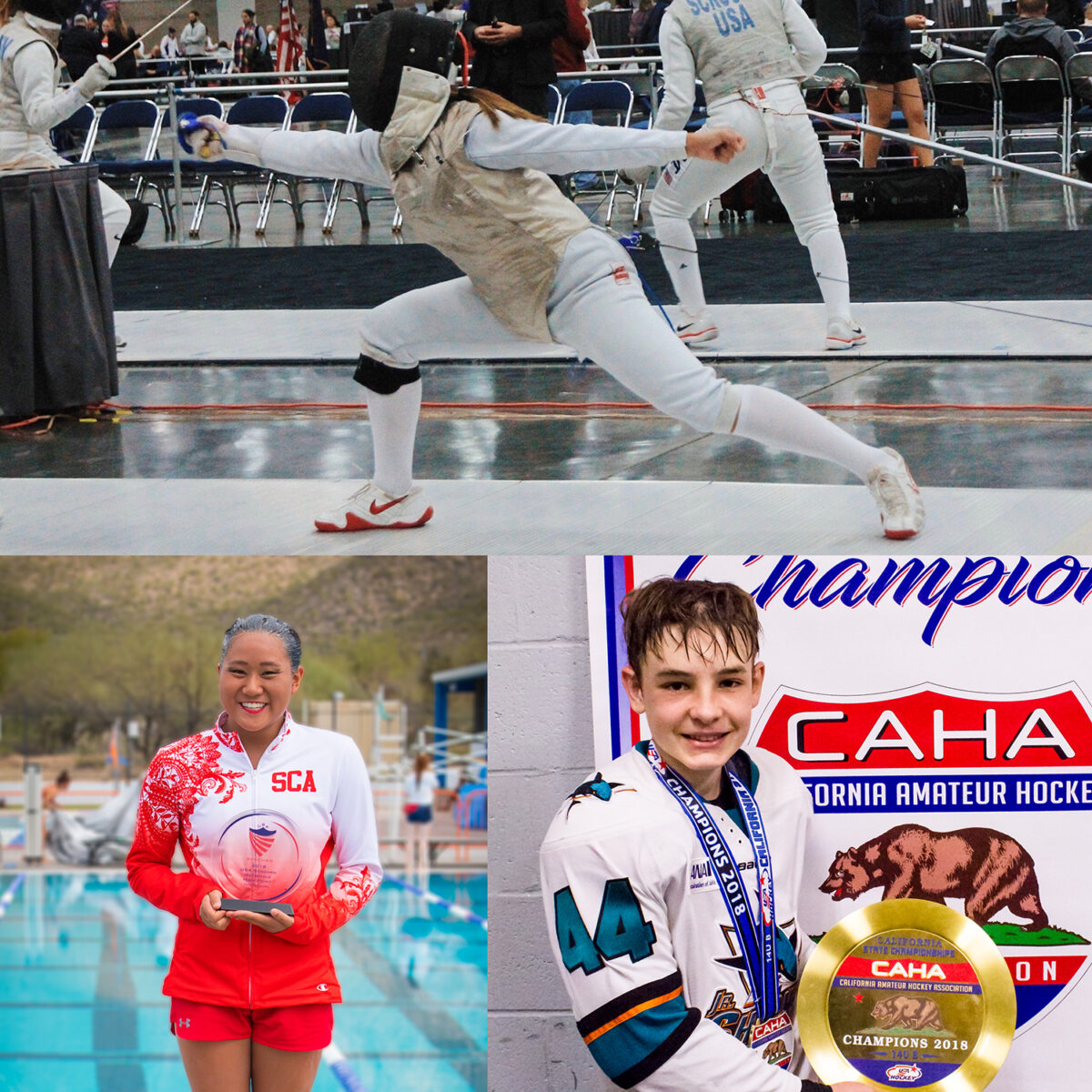Middle School
Students learn more about French food and culture on restaurant field trip
Middle school French students visited the Left Bank restaurant at Santana Row for a taste of French food and culture.
Harker teams earn recognition at 2018 Tech Challenge
Over the weekend, four Harker teams from lower and middle school were award winners in the 2018 Tech Challenge Showcase, held at the Tech Museum in San Jose.
Students take top spots at Future Problem Solving State Bowl, grade 8 team bound for internationals
Harker students from the lower, middle and upper schools headed to San Diego last weekend for the Future Problem Solving California State Bowl, where teams from all three divisions won in various categories.
Middle school Latin students sample Roman cuisine to celebrate famed city’s birthday
Japanese language students practice language skills during field trip
Speech and debate students bring home great results at state competition
Harker picks up four grand prizes at 2018 Synopsys Championship
At last month’s Synopsys Science & Technology Championship, four Harker juniors were grand prize winners, which earned them a trip to the Intel International Science and Engineering Fair.
Five students qualify for national math olympiads
Four Harker upper school students and one middle school student have advanced to the third round of the USA Math Olympiad and Junior Math Olympiad, respectively.
